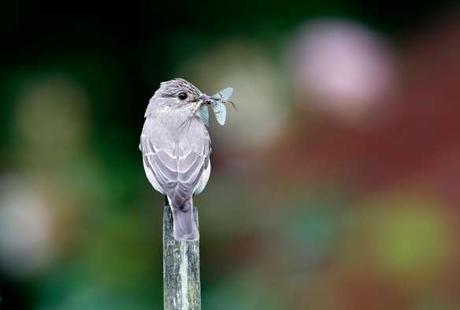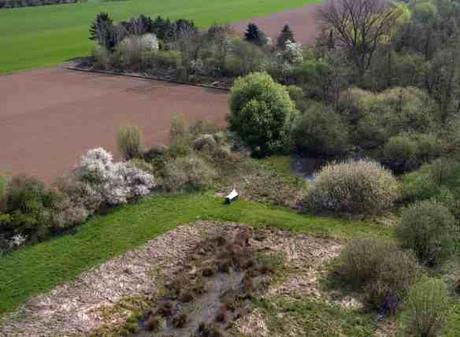GR: Over the past four years that I’ve reported bad news, this is the worst. We’ve known that insects were declining, but no one would have guessed the decline was this deep. Habitat loss is probably the leading cause (Yay farmers!), but pesticides applied to farms, roadsides, and settled areas undoubtedly play a serious part.
A raging disaster of this magnitude should spur a massive response. Can we reduce the human population and its growing demand for food, can we clean up our environment,can we stop using pesticides, can we cluster our homes and leave more untouched wild nature? Of course we can. If we don’t, the consequences for Earth and for humanity will be deep and dark.
Three-quarters of flying insects in nature reserves across Germany have vanished in 25 years, with serious implications for all life on Earth.

As well as being pollinators insects provide food for birds and other animals and help control pests. Photograph: Kevin Elsby/Alamy
“The abundance of flying insects has plunged by three-quarters over the past 25 years, according to a new study that has shocked scientists.
Insects are an integral part of life on Earth as both pollinators and prey for other wildlife and it was known that some species such as butterflies were declining. But the newly revealed scale of the losses to all insects has prompted warnings that the world is “on course for ecological Armageddon”, with profound impacts on human society.

The traps were set in protected areas and reserves, which scientists say makes the declines even more worrying. Photograph: Courtesy of Courtesy of Entomologisher Verein Krefeld
“The new data was gathered in nature reserves across Germany but has implications for all landscapes dominated by agriculture, the researchers said.
“The cause of the huge decline is as yet unclear, although the destruction of wild areas and widespread use of pesticides are the most likely factors and climate change may play a role. The scientists were able to rule out weather and changes to landscape in the reserves as causes, but data on pesticide levels has not been collected.
“The fact that the number of flying insects is decreasing at such a high rate in such a large area is an alarming discovery,” said Hans de Kroon, at Radboud University in the Netherlands and who led the new research.
“Insects make up about two-thirds of all life on Earth [but] there has been some kind of horrific decline,” said Prof Dave Goulson of Sussex University, UK, and part of the team behind the new study. “We appear to be making vast tracts of land inhospitable to most forms of life, and are currently on course for ecological Armageddon. If we lose the insects then everything is going to collapse.”
“The research, published in the journal Plos One, is based on the work of dozens of amateur entomologists across Germany who began using strictly standardised ways of collecting insects in 1989. Special tents called malaise traps were used to capture more than 1,500 samples of all flying insects at 63 different nature reserves.
“When the total weight of the insects in each sample was measured a startling decline was revealed. The annual average fell by 76% over the 27 year period, but the fall was even higher – 82% – in summer, when insect numbers reach their peak.” –Damian Carrington (Continue reading: Warning of ‘ecological Armageddon’ after dramatic plunge in insect numbers | Environment | The Guardian.)

